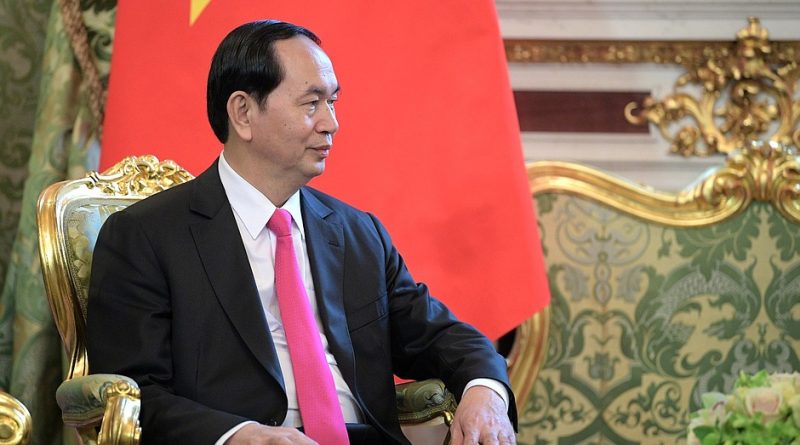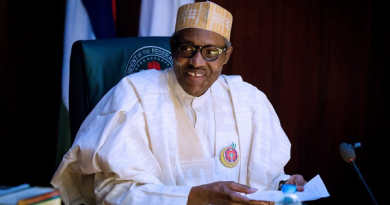Vietnam’s Political Future Following a Head of State’s Death
Tien Phan
Staff Writer
After several months fighting an unknown severe illness, Vietnam President Tran Dai Quang passed away on the morning of Friday, September 21, reports Voice of America.
Elected in 2016, the late President was only able to serve half of his five-year term. Before his nomination by the National Assembly to be the eighth President of Vietnam in 2016, Tran Dai Quang served as Minister of Public Security.
Acting as President of Vietnam, Mr. Quang focused primarily on dismantling political dissent both within and outside the Communist Party, fighting corruption in state-run companies, and negotiating for stronger trade deals with major powers.
Speaking to Voice of America, Carl Thayer, emeritus professor with the University of New South Wales in Australia, stated that the President’s function is more symbolic than strategic in asserting power within the state’s political system. As such, it seems there will not be any major changes in the country’s political or economic strategy with Mr. Quang’s death.
In asserting Vietnam’s image and power on the world stage, Mr. Quang delivered a speech at the 38th Singapore Lecture, the first by an acting President at the time, reports Asia Times. In his speech, the late President emphasized the importance of the “might makes right” mindset and how major powers can still resort to the use of force in regional or international disputes.
Mr. Quang focused heavily on the issue of South China Sea, an area rich in resources and strategic value for all nations in the region. With a history of developing and militarizing strategic islands, China is again trying to assert their regional dominance without regard to international agreements.
According to Vietnamese constitutional law, specifically article 93, “in case of vacancy of the State President, the Vice President shall retain the right to the State President until the new President is elected by the National Assembly.”
With that, Ms. Dang Thi Ngoc Thinh will hold the position; at least until the next National Assembly meeting takes place in October, as reports the South China Morning Post. This is the first time in its history that Vietnam has a female head of state.
The likelihood of Ms. Thinh’s official election in October, however, is quite low as she was not a member of the Politburo. Because of this, there is much speculation on who will be elected.
The Voice of America reports that there are currently three members of the Politburo in consideratio for the position: Tran Quoc Vuong, Standing Secretary of the Secretariat, Tong Thi Phong, Standing Vice Chairman of the National Assembly, and Nguyen Thien Nhan, Secretary of the Ho Chi Minh City Party Committee.
However, the most probable candidate is General Secretary of the Communist Party Nguyen Phu Trong. During his time as the General Secretary, he has also assumed the role of the president by visiting foreign powers on behalf of both the party and the state.
Mr. Trong also appeared in various bilateral meetings and international conferences with United States, China, European nations, and the Association of Southeast Asian Nations. According to former Deputy Head of the National Assembly’s Office Tran Quoc Thuan, the current General Secretary is improving his public image in preparation for the 13th Congress in early 2021.
There have been discussions on whether or not the position of the President and the General Secretary should be one role. Political disagreements have escalated as Mr. Trong continues to violate the constitution in playing both roles.
In a statement to Radio Freedom Asia, Dr. Nguyen Quang stated that Mr. Trong is also acting as a Head of State of Vietnam, which undermines the role of the President. “The tendency to focus too much on power is not good at all. It goes from one extreme to the other… I do not think it should be merged. Because at least in function, it has a distinction, that is, it has internal competition within it, rather than concentrating power.”



